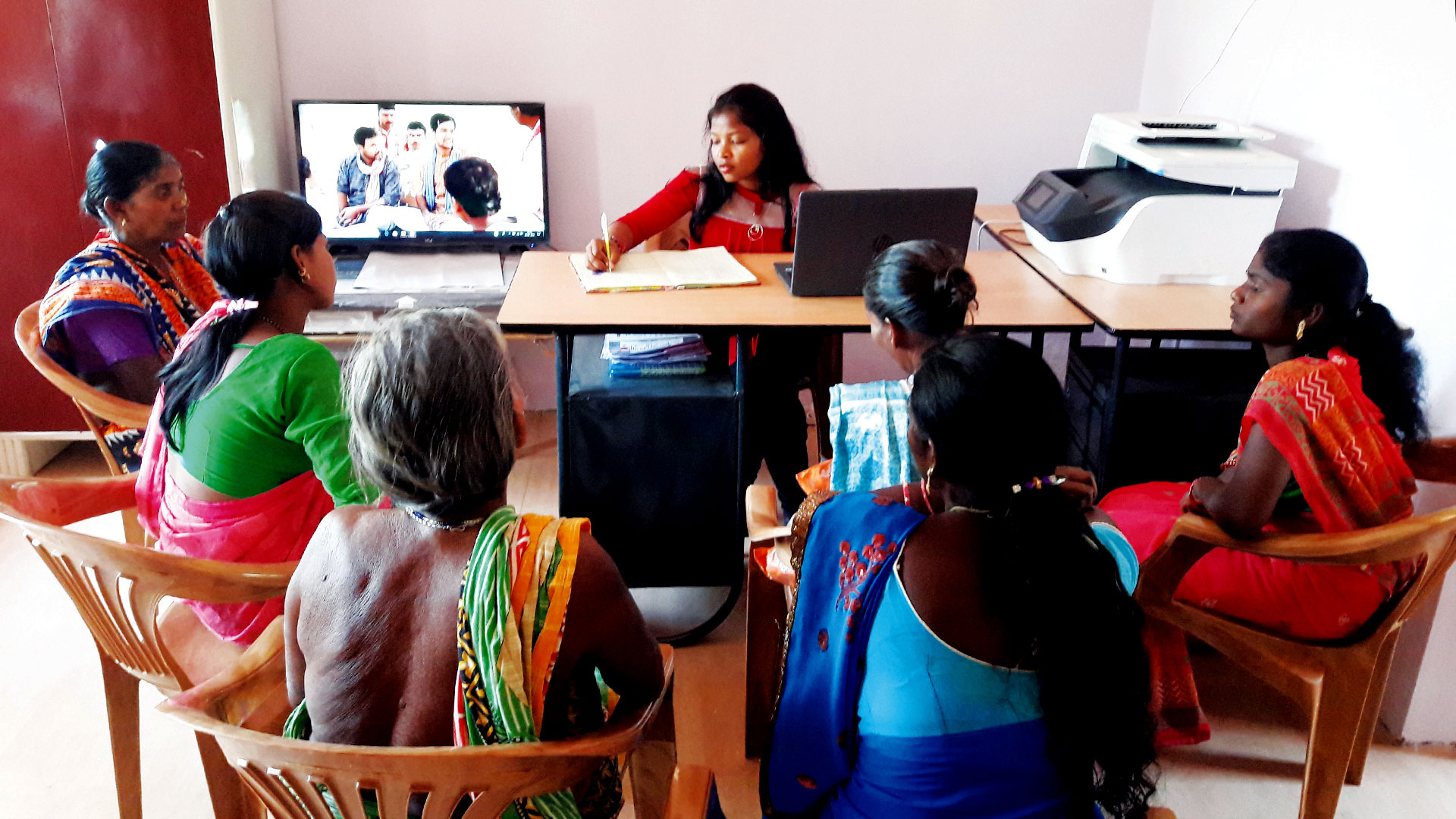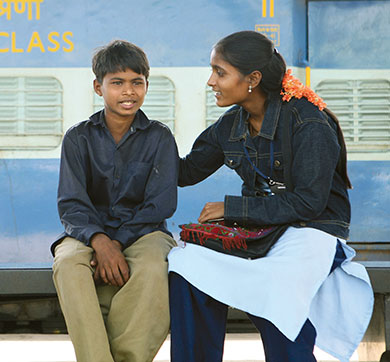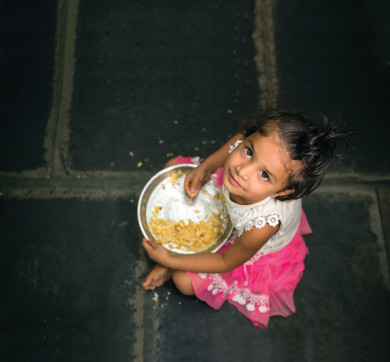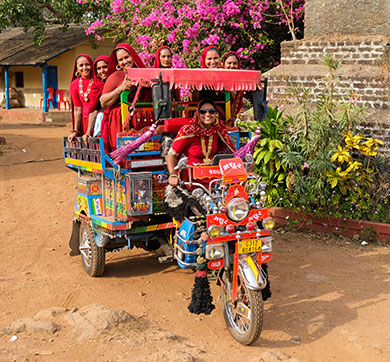December 2020 | 1155 words | 4-minute read
If there is anyone who unwittingly became the face of the coronavirus pandemic in India, it was the poor Indian migrant who epitomised the worst of hardships suffered. Who can forget the sight of migrants — whole families, carrying their meagre belongings and their kids on their shoulders — trudging long miles on foot or using whatever means of transport they could afford to return to their villages?
Their sufferings forced the entire nation to acknowledge the predicament of lakhs of people whose value has been undermined even as their labour kept the economy running smoothly.
In the aftermath of the lockdown, teams from the Tata Trusts made a number of calls to migrants in two states, in an effort to alleviate their misery and give them information about health and benefits that the government announced after the lockdown.
Raising concerns
Shikha Srivastava, head – Migration and Urban Habitat, Tata Trusts, says, “The Tata Trusts has been working on the migration portfolio since 2006. We started with an exploratory study to understand the issues that unskilled and semi-skilled migrants working in the unorganised sectors face. We were one of the first organisations to raise their concerns at different forums.”
The Trusts set up 100 Apna Seva Kendras (support centres) in three high-migration source states — Rajasthan, Uttar Pradesh (UP) and Odisha; and three destination states, where the migrants work — Gujarat, Maharashtra and Telangana.
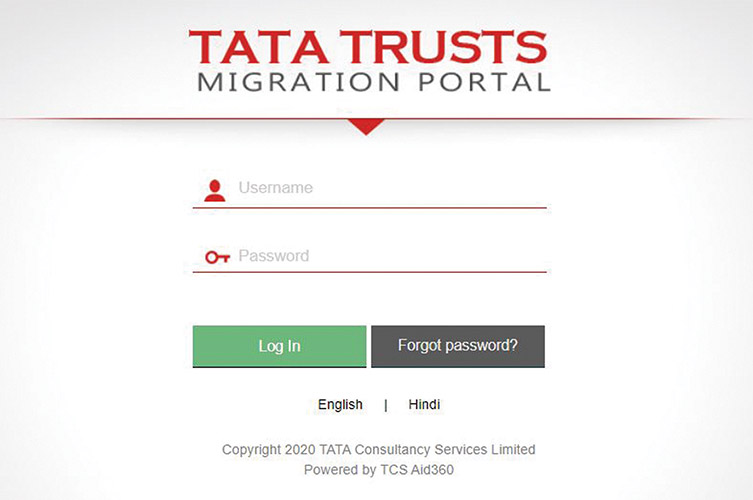
When potential migrants walk into a centre, they are met by the contact persons who interact with them and draw up the family profile. These people ascertain the schemes the migrants are eligible for, the schemes they have applied for, and the documents they possess. They help migrants by filling out online applications for documents required. They also follow up to ensure the benefits reach the migrants. The highlight of this outreach is that the contact persons speak to the migrants in their own language, exuding patience and the willingness to listen.
Birth of the portal
Over the last decade and more, the forms were filled manually. About 18 months ago, the Trusts sought to streamline the system. Tata Consultancy Services (TCS) stepped in, customising its 360 platform to create a migration technology portal that offers a database of all migrants and links them to benefits from various states. TCS did the work pro bono.
One of the portal’s key offerings involves the matching of migrants with benefits and schemes that they may be entitled to. The portal provides a dashboard for each kendra, showing how many people have applied for the various schemes and how many schemes have been availed.
Ms Shikha says, “We support migrants by linking them to entitlements and government schemes, helping with financial inclusion and legal counselling and, to an extent, by connecting them to skilling or non-farm-based livelihood opportunities.”
The portal proved its worth in Rajasthan and UP, where it was first put to work. “The portal helps us collect data about beneficiaries. It profiles the migrant and his household and suggests schemes they can avail of,” she adds. For example, construction workers are eligible for about 20 schemes under the Building Construction Workers Welfare Board. Elderly persons receive an old-age pension.
The portal streamlines the process of application for schemes and documents, and tracks application status. Once the benefits arrive, it maintains a record on the system. If the application is rejected, it flags the missing documents.
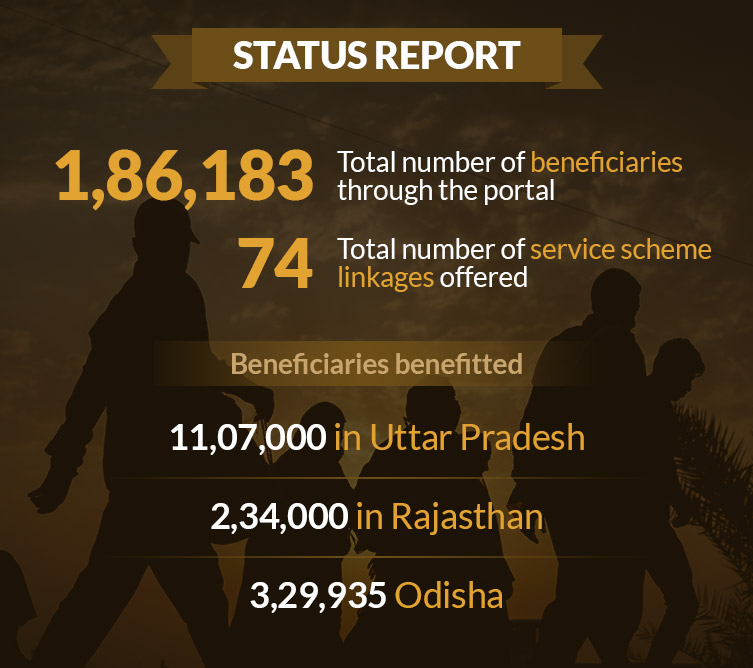
Improved working conditions
The Trusts is now working at a deeper level with the industries that employ the largest number of seasonal and vulnerable migrants, to bring about systemic improvements in their lives. Says Ms Shikha, “We work with the construction and brick kiln industries, where migrants often find themselves living and working in very exploitative conditions. At brick kilns, the condition is compounded by the fact that migrants move with their families, including very small children. So we try to set up day-care centres and early childhood care and learning centres.”
The Trusts’ first working experience with Tata Realty offers a striking example of how the best intentions combined with good action can transform the lives of migrants for the better. At Tata Realty’s construction site in Thane, near Mumbai, the Trusts’ team worked onsite, using the portal to link the migrant labourers to entitlements.
Buoyed by the success of this experience, the Trusts will be organising similar activities at other construction sites of Tata Realty. Going forward, the Trusts will provide the Tata Realty team guidance on handling the liaison activity themselves.
Creating scale
The portal has helped the Trusts reach out to more people efficiently. With a view to scaling up the programme, the Trusts worked out different models in each state to make the Apna Seva Kendras more self-reliant. The earlier model involved working with non-governmental organisations (NGOs) that received grants.
The Rajasthan model was set up in partnership with an NGO. In UP, the Trusts initiated local youth as entrepreneurs and trained them to manage the kendras and work with migrants. In Odisha, the model worked closely with the state government’s Labour department; the kendras were set up in gram panchayats.
Of the 100 kendras functioning in all, about 30 are connected to the portal. The kendras in Odisha are linked to the government system. They are not currently connected to the Trusts’ portal.
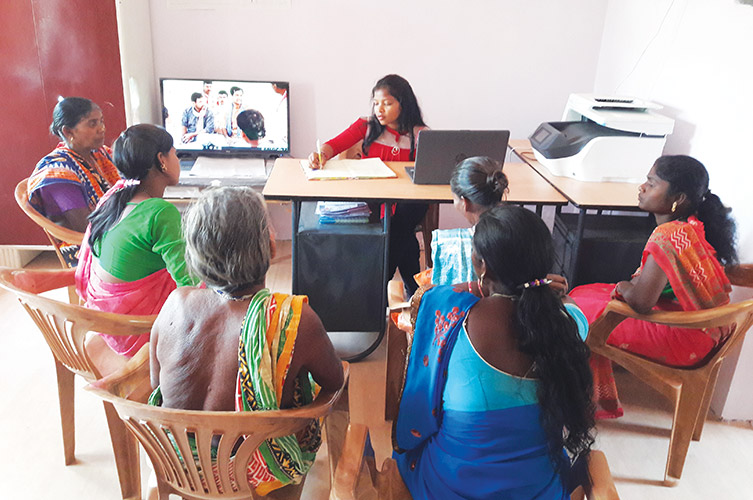
Need for change
One of the greatest advantages of the technology portal is that it enables the kendras to maintain a family profile of migrants and track the benefits they have received and those they need to receive. The need for accurate information is crucial. “When you have the right data, you can plan better,” states Ms Shikha, adding, “the figures provided by successive censuses made no demarcation between those who moved across cities for work and those who were socio-economically backward and in need of aid.
“Even when migrants move from one district to another within the same state, they lose access to the subsidised public distribution system. They are forced to buy food at market rates, which takes up a major chunk of their meagre income,” says Ms Shikha, adding, “The ‘One Nation, One Ration Card’ scheme aims to ensure the delivery of food security entitlements to beneficiaries in all the states and union territories but this plan is still in its infancy. In fact, all schemes need to be portable so that migrants can take advantage of them, no matter which part of the country they are living in.”
Miles to go
The pandemic has brought into focus the inequalities under which migrants and their families labour. “The rural economy cannot support migrants, and they will have to return to work. When they do, we hope it will be to improved social security measures and better housing and working conditions. It’s a long journey towards that goal, and the Tata Trusts is up to the challenge,” she adds.
—Cynthia Rodrigues
